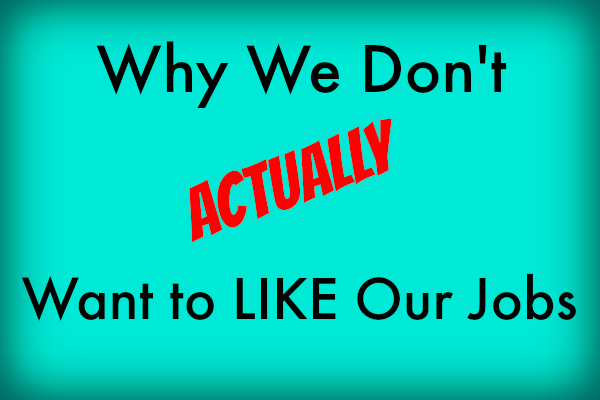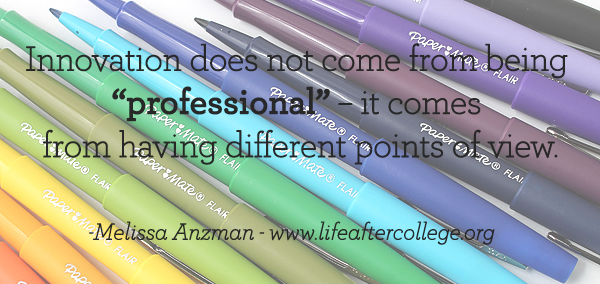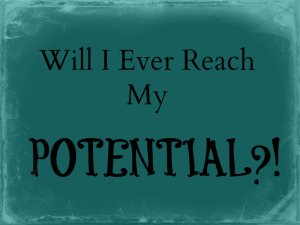by Rebecca Fraser-Thill

When you think of autumn, what springs to mind? Crisp evenings? Shortening days? Earthy scents? Halloween pranks?
Oh come on, you're holding back. Just try to convince me you don't think of school.
And no wonder you do: after umpteen-odd years of trucking off to pencils, books, and dirty looks at the first drop of a leaf, autumn and school are strongly associated in our minds.
Which is fine and all. Until this association starts making us think we want something that we don't.
The Dangerous Fall/Grad School Link
Let's get this out of the way up front, lest I be labeled an anti-gradschoolite. There are many valid, terrific reasons to attend grad school. For instance:
- Working toward better placement/career potential in a field in which you have proven and sustained interest
- Increasing your knowledge of a subject about which you have proven and sustained interest
- Engaging with the brightest minds in an area in which you have proven and sustained interest
(Sense a theme?)
If everyone were attending grad school for valid reasons, though, I wouldn't see a sudden surge in "hey former prof, I'm thinking of going to grad school!" emails every darn autumn. Which I do. Every year. The onslaught is a-coming.
To understand why the "huh, grad school is sounding good" blitz is a seasonal phenomenon, we must travel back in time to our childhood falls. In particular, to the prelude of our first day at school. (Cue the wavy lines and do-do-do-do music.)
The New-School-Year Scene: Your mom is ironing the brand-new outfit you’ll wear on your first day, and you’re loading your crisp, clean backpack with all manner of school supplies. Your erasers are pink and four-cornered. Your pencils are sharp and smell like a day in the words. Your notebooks are ripe with blank pages so fresh and new that they stick to one another in their spiral spine.
Can you feel it?
I'll bet you can.
For twentysomethings, The New-School-Year Scene is as irresistible as the (ever so brief) 'N Sync reunion.
Why Twentysomethings Crave Autumns from the Past
Why is the draw of school in the fall so overwhelming to us when we're in our twenties (and perhaps far beyond)? Because those are the years when we're positively unmoored by the lack of what I call The 3 P’s: possibility, predictability, and purpose.
When we conjure The New-School-Year Scene, those 3 P's become tangible all over again. We remember what it felt like to be poised on the edge of an entire new existence. Life seemed organized, opportunity-filled, and oh-so-beautifully structured.
No wonder, then, when autumn comes lugging its conditioned associations to The New School Year Scene we think:
“Oh! I could have those feelings again! I want that! I think I’ll go to grad school!”
Sorry to break it to you, but once college ends, the days of experiencing an externally-imposed sense of the 3 Ps are over. Period.
The twenties are all about accepting that very point. And then figuring out how to create our own internally-driven sense of predictability, possibility and purpose all the same.
This process is often termed "becoming an adult." And it sucks. Totally sucks. No sugarcoating there.
Thing is, going to grad school solve the underlying issue of needing to learn how to create for yourself what the world once created for you.
It only defers it.
(Full disclosure: I write this not as someone who took my own advice, but rather as a recovering Autumn-Allure Addict. Yes, a AAA. As bad as it gets. To avoid facing the fact that my days of externally-derived 3 Ps were over, I jumped into grad school AND teaching. That's right, I'm here to scare you straight.)
The Problem With Going to Grad School To Relive the Fall of Our Childhood
Point number two why grad school is the wrong answer if the idea is only hitting you in the fall: not only does grad school fail to provide the 3 P's for the long run, it also fails to square with nostalgia.
To see what I mean, please join me again in my time machine. This time we're traveling back to about two months into any given school year.
The Two-Months-Into-School Scenario: You’re back to wearing hand-me-down clothes that fit awkwardly and get you teased. Your backpack’s bottom has blackened and the zippers have begun to show signs of rebellion. Your erasers have turned into dark, amorphous blobs that are inexplicably sticky. Your pencils are perpetually broken and smell of cheese puffs. And your notebooks? Oh, your notebooks. Once a stack of possibility, they now hold words and symbols you barely care to try to understand and their voluminous ranks have been decimated from notes passed to friends and paper airplanes flown at substitutes.
Had you forgotten that scene? Ours minds are convenient like that, scraping the moderately crapping portions of life from our memories. Hence the onset of Twentysomething School Nostalgia.
This delusional nostalgia is a major issue. I’d wager it causes a good portion of poor-grad-school choices, with desire to impress and social comparisons being the other major reasons. (Or you can be really "awesome" and go for the trifecta like I did!)
The reality is that grad school consists much more of the Two-Months-Into-School Scenario and barely any of the New-School-Year Scene.
In fact, you don’t even get The-New-School Scene beyond the first year of grad school - if you even get that - because you work your behind off year-round. And you’d better be damned sure that you care about the words and symbols that you’re writing in notebooks because you won’t only be jotting them down, you’ll be creating some of those jammies of your very own.
(For the record, the same could be said of teaching, so don’t even go there unless you have a “proven and sustained interest” in pedagogy. Identical urge, different cloak.)
How to Fight the Annual Siren Call to Go to Grad School
So if you now recognize that your sudden desire to go to grad school is born more of the leaves a-changing than your purpose calling to you, how can you fight the insincere urge?
1) Start by accepting what you’re actually craving each autumn: a return to a life you’ve outgrown. Allow yourself to grieve the loss of the rhythms of childhood and the comforts those rhythms brought.
“Our twenties can be like living beyond time. There are days and weeks and months and years, but no clear way to know when or why any one thing should happen. It can be a disorienting, cavelike experience.” –Meg Jay, The Defining Decade
2) After grieving, create ways of infusing your current existence with hints of seasonality. It’ll take the edge off the false allure of autumn. For instance:
- Schedule a day-long clothes shopping trip every fall. Bonus: take mom with you - nostalgia and financial support in one fell swoop!
- Go back to using a paper planner and choose an academic year one even though you now live on a calendar – or fiscal! - year
- Reinvigorate your office supplies every fall with a fresh infusion of pens and desk organizers. And some of those big rubber erasers. Just for kicks.
3) Make a concerted effort to construct the 3 P's – purpose, possibility, and predictability – for yourself. This is, of course, a humongous task. No wonder I've devoted an entire website to the process.
All in all, do whatever you have to do to experience the clear path, opportunities, and “my life is all in order” feeling of your childhood autumns…without jumping into grad school. At least until grad school, not nostalgia, is truly what's calling you. Your wallet, social life, and mental stability will thank you for it.
We’d love to hear from you in the comments below:
What are you going to do to create a sense of purpose, possibilities and predictability this Fall – without entertaining the sudden notion of going back to school?
 About Rebecca
About Rebecca
Rebecca Fraser-Thill is the founder of Working Self, a site that helps young adults create meaningful work - that actually pays the bills! She teaches psychology and is the Director of Program Design for Purposeful Work at Bates College. Her work has been featured throughout the media, including on The Huffington Post, The Chelsea Krost Show, and Stacking Benjamins. Follow her @WorkingSelf.
 About Paul
About Paul






 Jenny Blake is the bestselling author of
Jenny Blake is the bestselling author of 









 One project I'm thrilled to be working on (with an incredible team) is a new app for people who describe themselves as "meditation curious" — you've heard about the many benefits of meditation, but aren't quite sure how to start.
One project I'm thrilled to be working on (with an incredible team) is a new app for people who describe themselves as "meditation curious" — you've heard about the many benefits of meditation, but aren't quite sure how to start.